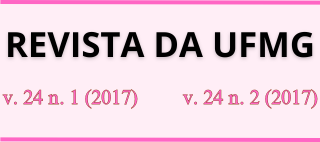Manuelzão Project
idealization, construction and institutional limits
DOI:
https://doi.org/10.35699/2316-770X.2017.12609Abstract
This publication makes an analysis of “Project Manuelzao”, based on its historical, philosophical and political background, covering the period from 1988 to 2013. The 1980s promised to be exciting: the end of dictatorship, returning exiles, direct elections, the constituent assembly, and people on the streets. After the euphoria came the frustrations. Nevertheless, new proposals of transformation, like “Project Manuelzão”, became spread in Brazil. With its intrinsic ecocentric view of nature, Projeto Manuelzao proposes to replace the existing anthropocentric-economical centered paradigm, and developed educational programs centered on intense social mobilization aiming to remediate the Rio das Velhas’ watershed. The return of the fish became its target, and also its indicator of success. “Project Manuelzao’s” inspiring vision of transdisciplinarity and social mobilization can serve as a well-succeeded model for establishing a new approach in how to deal with our scarce water resources. Furthermore, it proposes to replace the existing governamental geographical limits concept by watershed geographical limits concept, or simply the “Hydrographic Republic”. This paper celebrates the trajectory of the Project describing its conceptual framework, feasibility, with special emphasis on its identity, consistency, cohesion, and institucional challenges.




